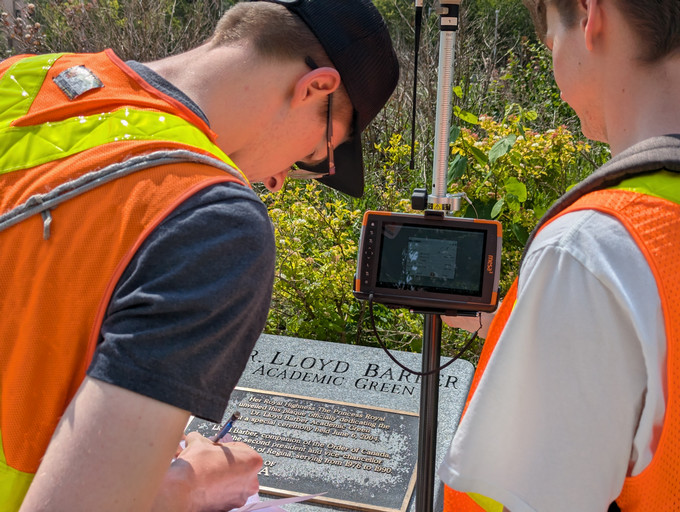Environmental Systems Engineering
What is Environmental Systems Engineering?
The Environmental Systems Engineering (EVSE) program is highly regarded by both students and industry professionals for its timely integration of environmental priorities with a systems-based engineering approach. This unique focus prepares graduates to effectively tackle complex civil and industrial environmental challenges. The program applies systems engineering principles to issues related to water resources, air quality, transportation, industrial development, and waste management.
We offer comprehensive undergraduate and graduate programs that combine academic depth with hands-on learning. Our undergraduate courses include extensive laboratory work, supported by full-time lab instructors who help students develop essential practical skills. Students also benefit from co-operative education and internship opportunities that provide valuable real-world experience. At the graduate level, MEng, MSc and PhD students have access to modern, well-equipped research facilities, enabling them to contribute meaningfully at the forefront of their fields.

Key research areas include:
- Environmental & Water Treatment
- Municipal and industrial wastewater treatment
- Water quality monitoring and reuse technologies
- Advanced treatment methods for rural and agricultural applications
- Environmental Engineering & Sustainability
- Waste management (solid, hazardous, composting, sludge)
- Air pollution control and management
- Landfill systems, site remediation, and risk assessment
- Sustainable urban and industrial environmental strategies
- Environmental & Hydrological Modeling
- Hydrological simulation and flood risk assessment
- Climate change impact modeling
- Optimization of water resources under uncertainty
- Geomaterials & Sustainable Waste Management
- Slurry, soil, and rock characterization
- Mine tailings, geosynthetics, and marginal soil systems
- Civil infrastructure on challenging geotechnical sites
- Textile waste recycling and circular economy modeling
Undergraduate and Graduate Programs

2023 recipient of the U of R President’s Award for Teaching Excellence

Highly Ranked Scholar
Gordon Huang; President International Society for Environmental Information Sciences, Fellow of Canada Academy of Engineering, past CRC Tier I in Energy and Environment
Ranked #2 in Programming model Lifetime in Highly Ranked Scholar, recognized by ScholarGPS for top 0.05% scholars worldwide, 2024. Highly Ranked Scholars™ are the most productive (number of publications) authors whose works are of profound impact (citations) and of utmost quality (h-index).
Careers for EVSE Graduates
What sort of career could you have?
Environmental Systems Engineers typically work in the following areas or hold the following job titles:
- Air Quality Engineer
- Civil Engineer
- Engineering Project Manager
- Environmental Consultant
- Environmental Engineer
- Geotechnical Engineer
- Geoenvironmental Engineer
- Government Policy Maker
- Hydraulic Engineer
- Irrigation Engineer
- Mining engineer
- Pollution Control Engineer
- Regulators
- Transportation Engineer
- Waste Management Engineer
- Water Resource Manager